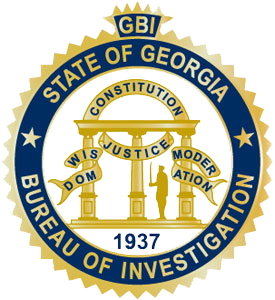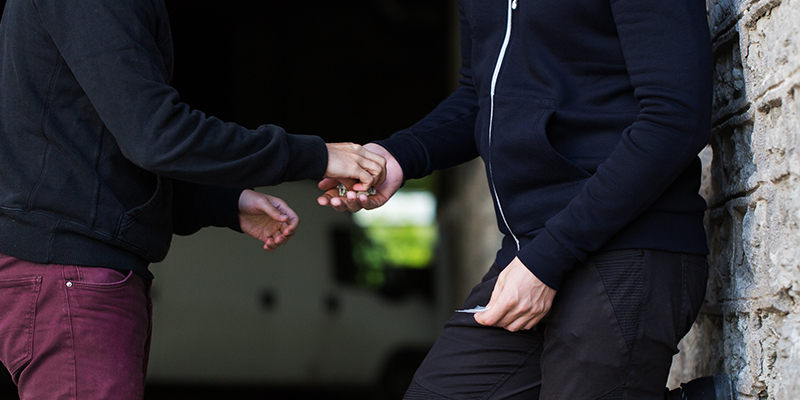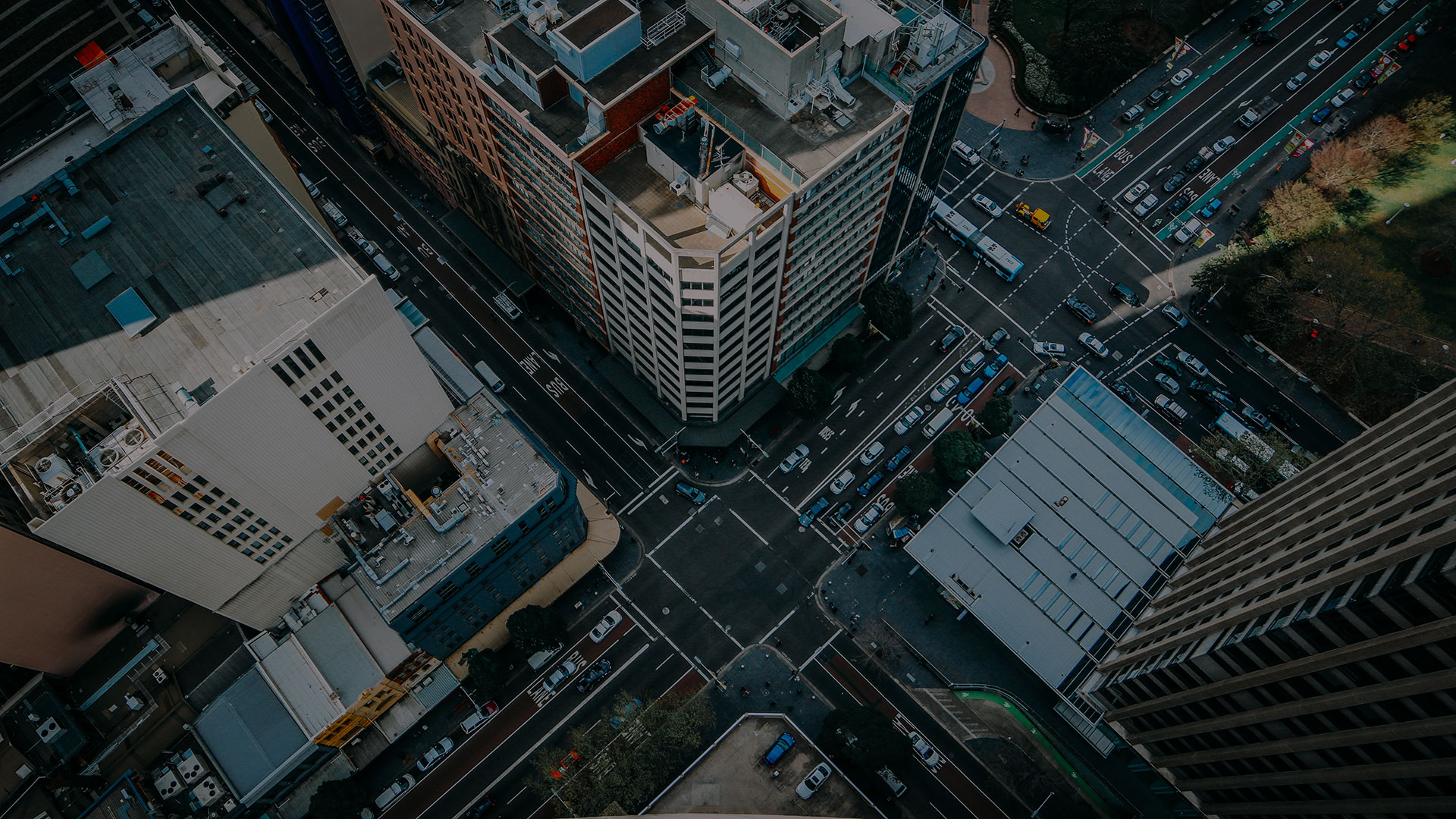06 May Drug Trafficking in Georgia
Table of Content

History of Drug Trafficking in Georgia
America has been battling the “war on drugs” for decades with political and military influences continuously looking for ways to combat drug trafficking and other illegal drug activity with varying levels of force. Beginning in the 1970s, under the Nixon administration, marijuana was the primary area of concern. Then, into the ‘80s, when crack cocaine use was on the rise spurring the “Just Say No” campaign and DARE programs.
Fast forward to the 21st century where illicit drug sales and use continue to be an important political focus with the need for government attention and intervention. Over the years, there has been a shift back and forth regarding what the “right” answer is: treatment for drug abusers and addicts or incarceration.
In the first few weeks of April 2016, President Obama proposed a billion-dollar spend towards care for opioid addicts. Numbers of those dying from drug overdoses reached record highs in 2014 further solidifying the cause for alarm in today’s “war on drugs,” a problem that is still alive and raging.
With the rise of prescription drug abuse, this type of addiction is often connected to future heroin use. It’s not only the urban neighborhoods of America being affected by drugs as previously determined. It’s spilling into suburban areas as well and has the ability to more easily affect you or someone you know.
Enter Georgia Bureau of Investigation: Operation Byrne Drugs 2
 Over the past 10 years, the Georgia Bureau of Investigation (GBI) and other state law enforcement agencies have been active and aggressive in cracking down on drug use. Beginning back as early as 2007, as part of “Operation Byrne Drugs 2,” the GBI listed 538 arrests and seizure of over 500 prescription pills, 183 pounds of marijuana, 10 pounds of meth, and nearly a pound of cocaine.
Over the past 10 years, the Georgia Bureau of Investigation (GBI) and other state law enforcement agencies have been active and aggressive in cracking down on drug use. Beginning back as early as 2007, as part of “Operation Byrne Drugs 2,” the GBI listed 538 arrests and seizure of over 500 prescription pills, 183 pounds of marijuana, 10 pounds of meth, and nearly a pound of cocaine.
Operation Byrne Drugs 2, a program named after a New York narcotics officer killed in the line of duty, was an effort led by the National Alliance of State Drug Enforcement, a week-long national operation, which resulted in nearly 5,000 total arrests, seizure of cocaine, heroin, meth, and marijuana. Through this concentrated effort, there were drug busts of 88 meth labs and seizure of $9 million in cash nationwide.
Agencies involved included highway patrol, local sheriffs’ offices, and drug task forces set up in undercover operations, issuing search warrants, and other police-operated missions. Operation Byrne Drugs 2 provided a glimpse into the level of crime drug enforcement officials see daily.
Following this national effort and the local drug raids which spawned from it, both the GBI and city officials have continued the fight against drug trafficking. A look at the history of drug trafficking in Georgia includes:
March 10, 2009 – Regional drug-fighting hub opens in Carrollton. It will serve as a multi-jurisdictional drug enforcement agency controlled by Georgia Bureau of Investigation.
March 25, 2009 – Carrollton man and two truck drivers from San Antonio, TX arrested for trafficking in 740 pounds of marijuana.
August 2010 – Atlanta man, Marlon Burton, sentenced to 30 years in prison for drug trafficking. He ran his organization under the cover of a contracting business in the city. He worked with a Mexican drug cartel to then distribute cocaine and other drugs to street-level dealers.
March 23, 2012 – Five people arraigned on federal drug and weapons charges. Investigators found cocaine, methamphetamine, 17 firearms, stun guns, police gear, and counterfeit currency in a Smyrna, GA apartment.
Oct. 3, 2013 – Major marijuana distribution ring in Atlanta busted.
January 2014 – Garnett Gilbert Smith jailed for 25 years for drug trafficking ring that operated everywhere from California to Maryland. Had property in Georgia.
January 25, 2014 – GBI investigators dismantled a meth lab at a Dekalb County hotel.
July 2, 2015 – Three arrested in Cobb County after 100 kilos of cocaine seized.
September 2015 – Federal prosecutors in Atlanta filed indictments that targeted criminal activity by Georgia inmates using cellphones to traffic drugs, smuggle in contraband, and steal identities.
January 2016 – Seventeen charged in drug trafficking ring run from inside Georgia prisons. Access to contraband cell phones allowed for communication and organization of drug trade and other illegal activity beyond the prison walls.
February 11, 2016 – Over 40 prison guards and officers indicted for accepting bribes and drug trafficking. Additionally, nearly 130 people, including inmates, former inmates, and employees, have been indicted on this federal crackdown in Georgia prisons.
February 17, 2016 – Horace Mayfield’s multi-million dollar drug trafficking organization dismantled – an effort that required the participation of 200 agencies. There were 24 arrests and an estimated $9.5 million worth of contraband seized.
Drug addiction is only part of the tragedy endured when drug trafficking takes over a community. It also increases the crime rate, provides a dangerous meeting ground for drug gangs and cartels, and causes people and businesses to abandon neighborhoods for safer areas.

Current Drug Trafficking Situation in Georgia
The ever changing “war on drugs” is one that continues to hit close to home for residents of Georgia. When it comes to regional drug enforcement in the state, the GBI currently holds offices in Carrolton, Metter, and Cleveland. In addition, Sylvester, Thomson, and Milledgeville offices are designated to be responsive for local law enforcement assistance, while also carrying responsibility of GBI efforts within designated counties of Georgia.
In partnership with the Criminal Justice Coordinating Council, the GBI, along with local law agencies, supports 11 Georgia-wide multi-jurisdictional drug task forces (MJDTF). These teams work in tandem with one of the state’s assigned full-time task force, the Atlanta High Intensity Drug Trafficking Area (HIDTA), which focuses efforts on the most high-profile region for drug traffickers. This area includes Cobb, Gwinnett, Fulton, and DeKalb counties.
The second full-time task force, the Organized Crime Drug Enforcement Task Forces (OCDETF) Strike Force, works to prosecute high-level drug traffickers on an international level. It investigates drug cartels that hold city operations in Atlanta but manages efforts on a much broader scale.
Various neighborhoods in Georgia, including Atlanta’s “The Bluff,” are notorious for its open drug activity. The availability of illicit drugs, especially heroin, has plagued the city for years and continues to be an area of disruption and call for a high level of concern for the state of Georgia.
Drug trafficking has hit hardest for neighborhoods who suffer poverty levels and lack proper education and job opportunities. In recent years, there have been initiatives to implement positive change and rehabilitation into these neighborhoods. However, as long as there is a need for drugs in a community, drug trafficking will thrive.
Any time a person is imprisoned for illegal drug activity, it doesn’t automatically eliminate the problem. As illustrated in previous cases, criminals involved in drug rings often find a way to continue their business of drug trafficking even while confined.
Does this mean that detox and treatment are the long-term answer to combat the cycle of drug trafficking and drug abuse? If nothing else, it’s a strong push in the right direction.
Solution: Get Treatment
According to the National Institute on Drug Abuse, the number of overdoses has steadily risen from 2001-2014. Deaths by heroin overdose have spiked dramatically over the years, increasing from approximately 1,800 in 2001 to over 10,000 in 2014.
By implementing initiatives and making direct efforts to cease drug trafficking in Atlanta and across the state of Georgia, the GBI is doing their part to make drugs less available and to take criminals off the street. This reduces drug sales, use, and the number of deaths that inevitably follow due to drug-related homicides, suicides, and overdoses.
The other fight against drug trafficking comes down to a more personal level. Logically speaking, if there is no need for drug use, the business of trafficking suffers and eventually becomes obsolete. While this particular approach is based on each individual and isn’t a solution that would occur overnight, the change can start with you or your loved one who may currently suffer from drug addiction.
The intel of our government agencies are designed to crack down on the heavy hitters in the cartel and drug trafficking world, but you can battle the war on drugs yourself with treatment. There are several levels and layers to care focused on eliminating drugs from your system. By choosing treatment and rehabilitation, you are given the tools, resources, and support needed to detox, resist cravings, and make healthy, drug-free choices for life.
Eliminating drug trafficking in Georgia requires the dedication of many with supervised progress and plans for setbacks in place. Eliminating drug use in your life requires the commitment of one. You alone make the decision to take hold of your sobriety. Fortunately, you don’t have to work through it by yourself, but it’s up to you take the first step.
Types of Drug Treatment
A successful treatment plan often incorporates a comprehensive approach. Georgia Drug Detox is a resource created to help those looking for a facility that best fits their needs. Not every place or program is the same, and each will offer different types of treatment plans. Typically, addicts first enter inpatient care.
Inpatient and Outpatient Care
Inpatient care is monitored by staff members trained in assisting addicts go through the detox period in the most comfortable way possible. Drug detox is not something a person should go through alone as side effects can be painful and the temptation of using too big to overcome. Inpatient care provides a safe environment with built-in support to help push through the difficult first steps to sobriety.
Following detox, many choose to stay at the facility as part of their rehabilitation process, while others choose outpatient care. Each option has its benefits and requirements to stay part of the program. This typically includes daily check-ins, group or individual therapy sessions, classes, and other ways to help a person when they are ready to transition back into society.
When you leave behind a life of drug use and move forward with sober free living, it can be challenging, to say the least. Drug addiction may have caused damaged relationships, lost jobs, homelessness, and other events which require a rebuilding period and an active support system.

State-Funded Assistance
State-funded programs are available for those who may not be able to afford treatment. They are in place for individual cases to offer assistance to those who may need it most. According to the National Survey on Drug Use and Health, the majority of the nearly 20 million people who needed treatment for substance abuse in 2014 did not receive it. It’s important to know how many options are available for those even in low-income positions who think of treatment as a medical luxury they cannot afford.
If you or a family member suffers from drug abuse or addiction, take the time to research what you are eligible for rather than dismissing the idea of rehab being a viable option for you. The decision to pursue treatment is a decision which requires regular action for it to be successful. Your health and life are worth it.
Counseling
Counseling is one of the most important components of drug treatment. It’s not a secondary thought or something that should be considered optional. Counseling gives the proper attention to understanding where addiction begins, where it stemmed from, and what serves as the catalyst for drug use. Without having this as part of a treatment plan, it leaves an open space for an addict to relapse. They wouldn’t have all the necessary coping mechanisms and clarity to recover fully.
Put plainly, drugs ruin lives. Fortunately, there is help. If you or someone you love has been affected by drug trafficking that has led to an addiction, contact Georgia Drug Detox. Every case of addiction is different and requires a personalized path to recovery. We can help you take the first steps.
Sources:
“Georgia Drug Trafficking Laws.” FindLaw. 4 March 2019. https://statelaws.findlaw.com/georgia-law/georgia-drug-trafficking-laws.html
“Drug Trafficking Laws in Georgia.” Pate & Johnson. 4 March 2019. https://www.pagepate.com/experience/criminal-defense/georgia-crimes/drug-trafficking-possession/
“Drug Trafficking Consequences in Georgia.” Bixon Law. 28 Aug. 2018. 4 March 2019. https://bixonlaw.com/drug-trafficking-consequences-georgia/



 678-771-6411
678-771-6411


No Comments